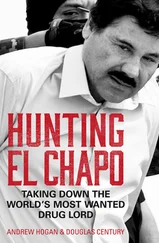Rick, helplessly stalled, saw another headlamp approaching from behind. It was Susan. She berated Swenson for leaving her without even checking to see whether she was all right. Butcher parked her team and helped Rick fix his headlamp. She explained that she had driven through here earlier trying to reach Timber, a sheltered area where the wind never blows, but that she’d turned back after losing the trail. The savage storm had engineered the unthinkable. Some 70 miles from Iditarod’s finish line, Rick and Susan, the sport’s celebrated rivals, agreed to stick together.
Swenson took the lead. The wind was so intense that he rode with his head turned to the left, protecting his face with the ruff. His leaders kept following the light to the side, and he repeatedly had to pull them back on the trail. Butcher was having the same troubles behind him. And then she was gone. No dogs. No headlamp. Swennie saw nothing behind him but swirling snow.
Cooley opened his eyes just in time. Daily’s figure was shrinking in the distance. The musher was on foot, his dogs apparently abandoned. Reflecting on his own misery, Doc was seized by the conviction that Tom — gripped by a suicidal impulse — was marching to his death. The veterinarian leaped from his sled.
Sheltered by the river bend, Daily hastily squatted in the snow and attended to what was, indeed, a personal emergency. He was pulling up his pants when Cooley rounded the corner.
“Tom, … I thought—” gasped Cooley, panting from his sprint. Then he noticed the steaming evidence of Daily’s vitality.
They both began to giggle.
Martin Buser was astonished. The shrewd Swiss musher had departed White Mountain at 5:30 A.M., holding scant hope of catching any of the four teams ahead. Yet, hard as it was to believe, here was Susan of all people, emerging from the blinding gale, returning toward the checkpoint.
“Hey, you’re going the wrong way, girl.”
“It’s not doable, Martin,” replied Butcher, mentioning that she feared for Swenson’s life. Lost as he was out there. “What are you going to do?”
“Well, I think I will give it a try,” said Buser.
Tim Osmar and Joe Runyan materialized from the storm next. Like the champ, both were returning to White Mountain. They urged Buser to give it up. To take shelter at the checkpoint until the weather broke.
Declining the invitations, Buser drove onward. He’d waited for this chance at redemption, at erasing the memory of the opportunity he had blown the year Redington faltered.
In the 1988 race, Buser’s young hounds had slowly but surely run down Smokin Joe’s team. They nipped at Redington’s heels all the way down the Yukon. The old musher’s dogs remained swift, but he was having increasing trouble staying awake. Redington gave it his best, retaking the lead several times between Ruby and Kaltag. But he wasn’t going to win.
The only one with a chance to stop Butcher that year was Martin Buser, an intense Swiss expatriate who was making his first appearance in the Iditarod’s front pack. Swenson was rooting for him, indeed, for anyone who could halt Butcher’s drive for three straight wins. He sent word that Martin should go ahead and use the lightweight racing sled he had waiting on the coast.
Leaving Shaktoolik, Buser actually led Butcher by nearly an hour. The sun was sinking, throwing rosy shadows across the ice. Photographer Rob Stapleton and I followed Butcher out of town on a snowmachine. She was all business in her red jump suit. Her team looked strong. Her lead dog, Granite, owned this section of the trail.
Then a ground blizzard swept across the front pack. Buser became disoriented and was lost for hours in the whiteout. When it lifted, Butcher held a commanding lead.
“I’ve gotten sleep all over the place,” she said, claiming the crown. “I don’t even feel like I’ve been in an Iditarod race.”
Looking haggard and disgusted, Swenson trailed her into Nome, saying that he “felt a little bad about beating Martin.” Buser finished a distant third, his face a windburned mask of regret.
In the three years since that disappointment, Buser hadn’t ever come close to duplicating that showing. Other mushers faulted his breeding program. Too much hound in those dogs, they said. The breed can’t handle coastal wind.
Watching Susan and the others retreating, Martin Buser reeled from the opportunity now before him. Far from being frightened, he heard a magnificent, enthralling, victory song riding this storm.
Back at White Mountain, Butcher described how she had marked Swenson’s last known location with an X in the snow, in case snowmachiners launched a search.
“If Rick’s got a leader with the will to get him through, more power to him,” she told a Times reporter. “I don’t think he had much hope when I last saw him.”
At the tail end of the field, Barry Lee made a deal. Two villagers in Grayling would bust a new trail to Eagle Island on their snowmachines, and he agreed to pay for their gas. The last musher in the field repacked for the Yukon with new determination. Next stop, Eagle Island.
Right off the bat, Lee noticed that his dogs looked feeble. The team’s confidence was shot from the recent turnabouts. It was a dispirited bunch that stumbled out of Grayling along the familiar river trail. Barry resorted to the easy two-hours on, two-hours off, schedule he had used during the first days of the race. This time it failed to perk up the dogs. The team’s progress remained dismal. Twelve hours of effort netted Lee barely 20 miles.
Less than an hour past our wretched Yukon camp, we found the cabin Doc had talked about the night before. The owners, David and Mona Blackburn, had amazing news.
“Have you heard? Swenson passed Butcher in a storm.”
After they became separated, Swenson apparently figured that Butcher had made use of the blinding conditions to pass him. That suspicion seemed confirmed since his leaders soon regained their confidence, acting as if they were chasing another team. The wind faded as Rick neared the cabin at Timber, where the snowfall reminded him of flakes in a Christmas ball. The 12-mile trip from White Mountain had taken three hours. Now the musher was presented with a mystery. Eight inches of fresh snow rested on the ground, and it was completely free of tracks. How could that be? Swenson wondered. Was Susan lost?
After a brief rest, Swenson continued. Emerging from the sheltering trees, the trail reentered the wind. There weren’t any markers to follow, and the team strayed into a willow patch. Swenson cautiously backtracked until he found a reflective marker. He was again on track, but the musher knew he had to be careful. Visibility was so bad he couldn’t even see his own feet. None of his lead dogs could be trusted here.
Clipping together a handful of spare neck lines, the musher attached himself to the front of the dog team. He was the leader now. Advancing from marker to marker, Swenson led his dogs onward. The wind remained blinding. The dogs repeatedly knocked him down, surging forward faster than he could walk. His driverless sled kept lurching into the team and causing tangles. Was this all worth it? the 40-year-old musher asked himself. Thoughts of his strained marriage and the years of humiliation provided him with his answer. Death on the Iditarod Trail would be better than giving in now, Rick Swenson vowed.
He was resting on the ridge, with his hood ruff flapping in the wind, when a bright light approached. He assumed it was Butcher and felt drained. But the light belonged to a snowmachiner.
“Where are the others?” Swenson asked the driver.
“They all turned back.”
Twenty-three hours after leaving White Mountain, a slow-moving musher, with his parka collar sealed up to his nose, stood by the Burl Arch in a glare of floodlights, stiffly waving to the crowd cheering his arrival at the Iditarod’s finish line at 1:35 A.M., March 15.
Читать дальше












